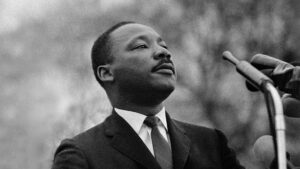One piece of advice for building a successful cause challenge – take it a step (or two) further than you think is necessary.
One venue where this lesson is especially important is in Arizona courts, where beginning January 1, 2022, there are no longer peremptory challenges – only cause challenges. The courts of course made this change to eliminate attorney bias and to create a jury pool that more closely reflects the community. Thus, the only way to remove a juror is to establish they cannot assess the case even-handedly and to excuse them for cause.
I recently selected a jury in Phoenix, AZ and knowing we were restricted to only cause challenges, the lead attorney and I worked together extensively before trial to ensure he felt confident in his ability to “work up” cause challenges.
Attorneys know that for the judge to grant a cause challenge, bias needs to be established, which can be extremely difficult to do for a variety of reasons, not the least of which that people do not want to admit they are “biased.” Another frustrating reason is that judges continue to believe that they can ask the magic question, and the juror will instantly not be biased: “Despite [stated bias], you’ll be able to follow the law/listen to my instructions, correct?” A “yes,” or even a weak “I guess so…” usually leads to a rejection of the challenge. Therefore, to make sure your cause challenge sticks, language choices and a welcoming/non-judgmental tone are critical. The key is you need a juror to admit “bias,” acknowledge the strength of that bias, and give them an out, so if faced with rehabilitation efforts by opposing counsel or the judge, the juror sticks to their guns.
I have found that a good question can do all of this. Below are a few of my favorite questions for uncovering bias:
- When I was younger, I was (bit by a dog, hit while riding my bicycle, injured by a product). If I was called to sit as a juror that had to do with (same), I would not be able to be an impartial juror on that case because I have had a similar experience. And that’s okay – everyone has experiences that impact the way they view the world. On the other hand, I would be a fine juror on a case having to do with patents because I have never invented anything, never filed for a patent, and do not know much about the Patent and Trademark Office. Based on what you know about this case so far, does anyone feel that based on an experience you have had in your life, that you would not be able to be an impartial juror on this particular case?
This question puts into context the fact that depending on life experiences, different people are better suited to serve as jurors on some types of cases and not on others. It provides a simple comparison to something you personally would not be able to judge impartially so jurors can think about how their own experiences may impact the way they view the facts of a case. In other words, it gives them an opening to share – to admit an experience has colored the way they view the world and there will be no judgement.
The above was based on a juror’s experience, but the same type of question works with an opinion. For example, “My dad is a doctor who practiced for over 40 years in a small community. My brother became a doctor following in his footsteps. So, while that’s my experience, it has also colored my opinion about doctors. I’d have a very difficult time being fair and impartial in a medical malpractice case and I’d have to say so. ….”
- Based on that experience/attitude/belief, would my side start out a bit behind the other side at the start of trial?
This question highlights the fact that the other side does not need to start out far ahead of your side for the juror to have a bias. It only requires that the other side would start out a little bit ahead to show that both sides are not starting on an even playing field. Educate jurors that this is the point of jury selection – to identify jurors who start out viewing the case from a neutral standpoint.
- Based on your experience/attitude/belief, would you be more comfortable serving on a jury that does not have to do with (X)?
This question alleviates concerns some jurors have that expressing a bias may appear to be a way to get out of jury duty. This allows them to rest assured that it is not that they are a “bad juror” for every case, they just may not be appropriate for this case. This has the added benefit of signaling to a juror that they can get out of this jury service – perhaps to serve later – but at least not today. I’ve found that a juror is more likely to stick to their guns if they realize not only are they not being judged for their bias, but they have a way out of jury duty.
- If you were in my shoes, would you worry about someone holding this particular opinion/having this particular experience serving on this jury?
This question encourages the juror to think about their experience/attitude/belief from an outside perspective. They are encouraged to evaluate themselves realistically to determine if they are a good juror for your particular case.
The ability to build a successful cause challenge can greatly improve the jury pool in favor of your client. Practice different approaches to encourage jurors to express their potential bias in a variety of ways to ensure opposing counsel (or the judge) does not undo your work by effortlessly rehabilitating a juror who has only expressed bias in answering a single question.




